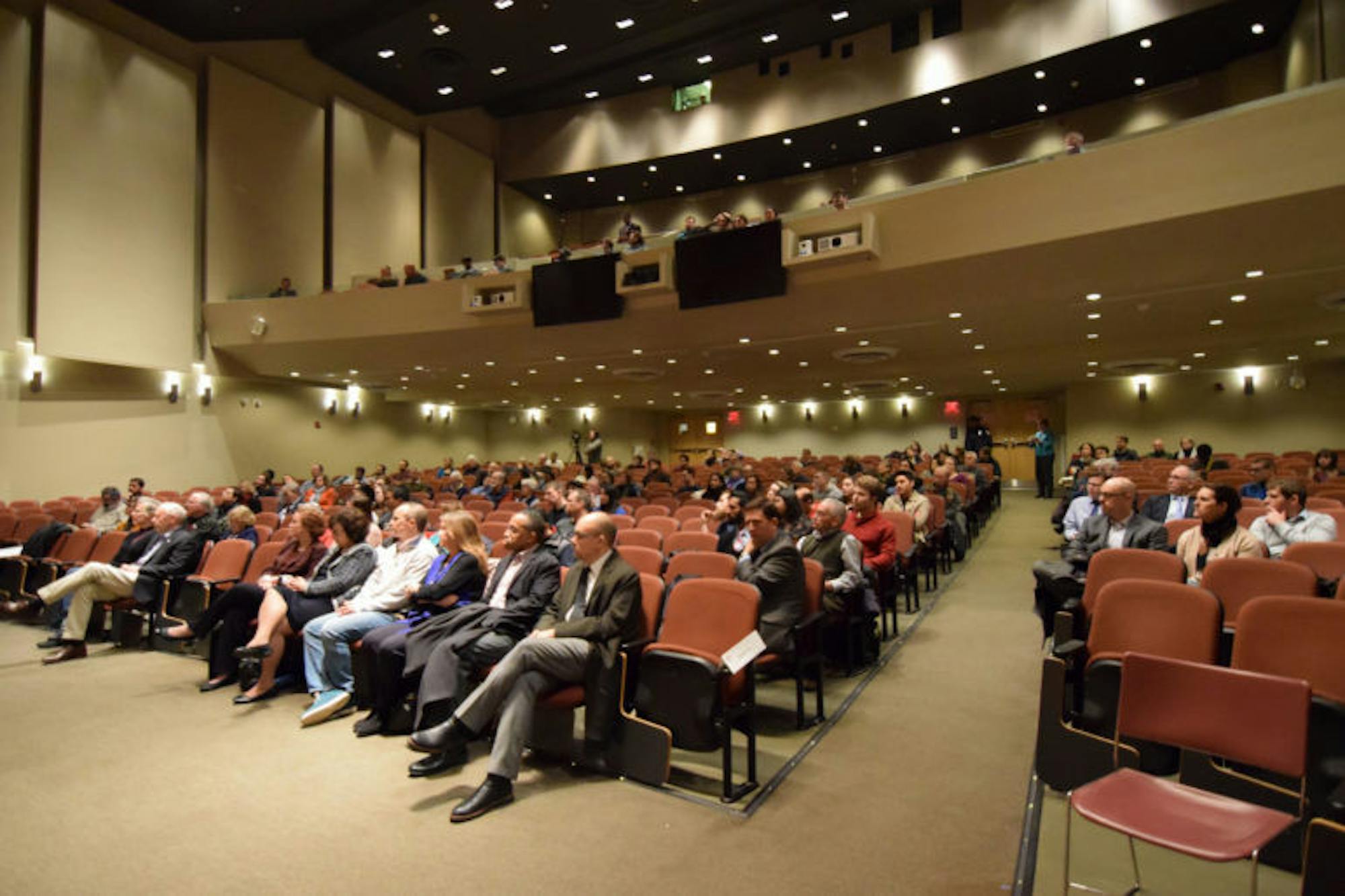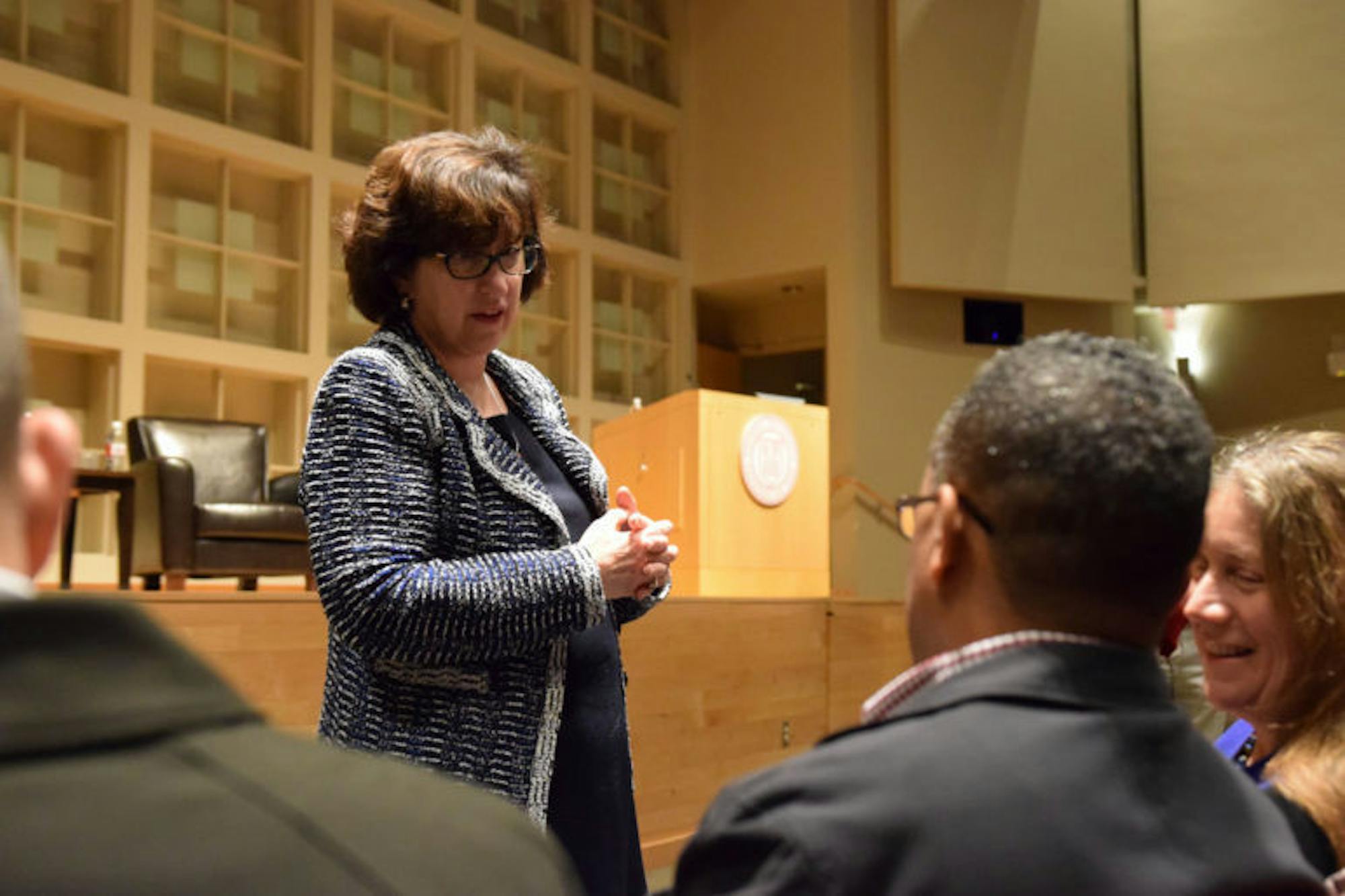Although throughout the semester, Cornellians have demanded a campus-wide crackdown on hate speech — notably in resolutions passed by both the Student Assembly and the Graduate and Professional Student Assembly — a recent speaker pushed students to consider an opposite agenda.
Invited to speak Monday evening by President Martha Pollack as part of her effort to address complicated questions about protecting free speech on college campuses, Prof. Erwin Chemerinsky, dean of Berkeley Law at the University of California, weighed in on the debate.
Chemerinsky provided his stance on hate speech at his talk, revealing that he is a firm advocate of free speech and urging students to protect all speech.
“Hateful speech is protected by the First Amendment,” Chemerinsky said, adding that private universities, while not required by law, should allow the same level of free speech as their public counterparts.
“All ideas and views can be expressed on a college campus. Period,” he said. “It’s very important to make the distinction between discussing what the current law is as opposed to discussing what we think the law should be.”
However, Chemerinsky explained to the audience that he believes there are several main exceptions to the First Amendment’s protection of speech.
Those include inciteful language, fighting words and words that present a true threat, that is language that conveys “imminent danger to physical safety,” he said.
While many would add hate speech as the final category to this list, Chemerinsky disagrees with such an inclusion.
To explain, Chemerinsky stressed a shift away from the common rhetoric of the term “hate speech.”
“It’s important to separate the colloquial use of the term from the legal test that’s going to decide it,” he said, warning that these instances can be difficult to have hold up in court.
“Many scholars argue that hateful speech should be beyond the pale and outside the scope of the First Amendment,” Chemerinsky said.
Disagreeing with those scholars, Chemerinsky said that he does not think one should be able to pick and choose which voices and opinions are heard.
“Hate speech is protected by the First Amendment, because it expresses an idea. It [may be] a vile viewpoint, but as I said, under the First Amendment, all ideas have use,” he said.
Ultimately, Chemerinsky urged the audience to put aside individual feelings on the topic of protecting free speech both on campus and beyond.
“The reason we protect free speech is not for the speech we like,” he said. “We let that go on anyway. But the only way I’m going to be able to speak tomorrow is to allow the speech I don’t like today.”

Berkeley Law Prof Urges Cornell to Uphold Freedom of Speech, Including Hate Speech
Reading time: about 2 minutes
The audience at the lecture at Statler Auditorium on Monday.
President Martha Pollack chats with audience members before the lecture.
Read More










